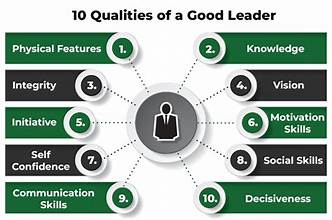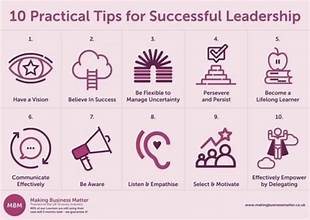In the rapidly evolving landscape of the modern workplace, the role of a leader is more dynamic than ever before. As we move into 2024, successful leaders will need to embody a new set of skills and traits to navigate complexities, inspire teams, and drive organizational success. This article explores the top leadership skills for 2024, highlighting the key traits that will define effective leaders in the contemporary business environment.
1. Emotional Intelligence (EI)
Emotional intelligence has been a cornerstone of effective leadership for years, but its importance is only increasing. In 2024, leaders must possess a high level of EI to manage their own emotions and understand and influence the emotions of others. This skill helps leaders build stronger relationships, resolve conflicts effectively, and create a positive work environment.
Key aspects of emotional intelligence include:
- Self-awareness: Recognizing one’s emotions and their impact on decision-making.
- Self-regulation: Managing emotions in a healthy way and adapting to changing circumstances.
- Empathy: Understanding and addressing the emotional needs of team members.
- Social skills: Building and maintaining strong relationships, and effectively managing social networks.
2. Adaptability and Resilience
The pace of change in today’s business world demands that leaders be adaptable and resilient. In 2024, leaders must be able to pivot quickly in response to market shifts, technological advancements, and unexpected challenges. Resilience allows leaders to recover from setbacks and maintain a positive outlook, even in the face of adversity.
Key aspects of adaptability and resilience include:
- Flexibility: Being open to new ideas and approaches.
- Problem-solving: Quickly finding solutions to emerging issues.
- Stress management: Handling pressure without compromising performance.
- Learning agility: Continuously updating skills and knowledge to stay relevant.
3. Visionary Thinking
Visionary thinking is crucial for leaders to inspire and guide their teams toward long-term goals. In 2024, successful leaders will need to have a clear vision of where their organization is headed and how to achieve those objectives. They must be able to communicate this vision effectively and motivate their teams to work toward it.
Key aspects of visionary thinking include:
- Strategic planning: Setting clear, actionable goals and outlining steps to achieve them.
- Innovation: Encouraging creative thinking and embracing new technologies and methodologies.
- Inspiration: Motivating and engaging teams by sharing a compelling vision of the future.
- Trend awareness: Staying informed about industry trends and anticipating future challenges.
4. Inclusive Leadership
Inclusivity is becoming a crucial component of effective leadership. Leaders in 2024 will need to foster an inclusive work environment where diversity is celebrated and all team members feel valued. Inclusive leadership promotes collaboration, enhances problem-solving, and drives innovation by leveraging diverse perspectives.
Key aspects of inclusive leadership include:
- Diversity advocacy: Promoting a diverse workforce and creating opportunities for underrepresented groups.
- Cultural competence: Understanding and respecting cultural differences within the team.
- Equity: Ensuring fair treatment and access to opportunities for all team members.
- Belonging: Creating a work environment where everyone feels accepted and included.
5. Digital Literacy
As technology continues to advance, digital literacy has become a fundamental skill for leaders. In 2024, leaders must be proficient in using digital tools and platforms to enhance productivity, communication, and decision-making. Digital literacy also involves understanding cybersecurity and data privacy issues.
Key aspects of digital literacy include:
- Tech-savviness: Familiarity with the latest digital tools and platforms.
- Data analysis: Using data to inform decisions and drive strategies.
- Cybersecurity awareness: Understanding and managing digital security risks.
- Remote leadership: Effectively managing teams in a virtual or hybrid work environment.
6. Collaborative Leadership
Collaboration is key to achieving organizational goals and fostering a positive work environment. In 2024, leaders must be adept at building and leading collaborative teams. This involves creating a culture of teamwork, encouraging open communication, and leveraging the strengths of each team member.
Key aspects of collaborative leadership include:
- Team building: Developing a cohesive team that works well together.
- Communication: Facilitating clear and open communication channels.
- Conflict resolution: Addressing and resolving disagreements constructively.
- Delegation: Assigning tasks effectively and trusting team members to deliver results.
7. Ethical Leadership
Ethical leadership remains a critical trait for successful leaders. In 2024, leaders must uphold high ethical standards and demonstrate integrity in their actions and decisions. Ethical leadership builds trust and credibility, both within the organization and with external stakeholders.
Key aspects of ethical leadership include:
- Integrity: Adhering to moral and ethical principles in all actions.
- Transparency: Being open and honest in communication and decision-making.
- Accountability: Taking responsibility for one’s actions and decisions.
- Social responsibility: Considering the impact of decisions on society and the environment.
8. Mentoring and Coaching
Effective leaders in 2024 will also act as mentors and coaches, helping their team members grow and develop. This involves providing guidance, offering constructive feedback, and supporting professional development. Mentoring and coaching not only enhance individual performance but also contribute to overall team success.
Key aspects of mentoring and coaching include:
- Personal development: Supporting team members in their career growth.
- Feedback: Providing regular, constructive feedback to improve performance.
- Goal setting: Assisting team members in setting and achieving their professional goals.
- Skill development: Identifying and nurturing the skills and talents of team members.
9. Decision-Making Acumen
Strong decision-making skills are essential for leaders to navigate complex situations and drive organizational success. In 2024, leaders must be able to make informed decisions quickly and effectively, balancing short-term needs with long-term goals.
Key aspects of decision-making acumen include:
- Critical thinking: Analyzing information and evaluating options thoroughly.
- Risk management: Assessing potential risks and making decisions that minimize negative outcomes.
- Decisiveness: Making timely decisions and standing by them.
- Data-driven decisions: Leveraging data and analytics to guide decision-making.
10. Customer-Centric Leadership
In today’s competitive business environment, understanding and prioritizing customer needs is crucial. Leaders in 2024 must focus on delivering exceptional customer experiences and building strong relationships with clients. A customer-centric approach drives satisfaction, loyalty, and business growth.
Key aspects of customer-centric leadership include:
- Customer insight: Understanding customer needs and preferences.
- Service excellence: Ensuring high-quality interactions and support.
- Feedback integration: Using customer feedback to improve products and services.
- Relationship building: Developing long-term relationships with clients and stakeholders.
Conclusion
As we approach 2024, the landscape of leadership continues to evolve. Successful leaders will need to embrace a diverse set of skills, from emotional intelligence and adaptability to digital literacy and ethical leadership. By developing these key traits, leaders can navigate the complexities of the modern workplace, inspire their teams, and drive organizational success. Embracing these leadership skills will not only enhance individual effectiveness but also contribute to a thriving and resilient organization.


